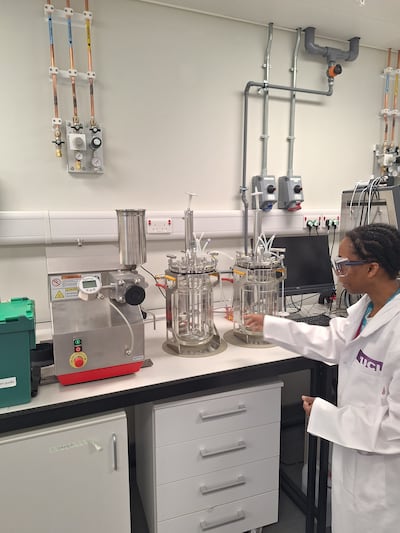Thermo Fisher Scientific was one of the first companies in its peer group to have its near and long-term net-zero targets validated by the Science Based Targets initiative (SBTi). The company aims to achieve net zero by 2050, and has set a series of interim milestones, including a recently added global energy target based on renewable electricity.
In this podcast, Meron Mathias explains Thermo Fisher’s sustainability targets within the E in ESG. She conveys the importance of concurrent diversity, equity and inclusivity (DEI) compliance, to help ensure all elements of the sustainability agenda progress at the required pace. She takes forward the position she laid out in a 2023 interview with In Vivo. (Also see "The E in ESG: Thermo Fisher On Why The ‘How’ Is More Important Than The ‘When’" - In Vivo, 22 May, 2023.)
Since joining the company as head of CSR and sustainability in 2020, and then being elevated two years later to vice president, Meron has focused on enabling Thermo Fisher’s customers to make the world healthier, cleaner and safer through a combination of innovative technologies and ethical business processes.
She explains the important elements in compliance, what guides Thermo Fisher’s policy on compliant innovation and R&D, and the “five environmental impact areas” it factors into the innovation process to help ensure: reduced presence of hazardous chemicals, reduced waste generation, enhanced energy efficiency, use of responsible packaging practices and promotion of product longevity.
Citeline · Sustainable By Design: Thermo Fisher's Meron Mathias On ESG Compliance And The Competitive Edge
Meron highlights that innovating “in the right ways to support environmental sustainability” provides a competitive advantage. She stresses: “Our Greener by design program has shown that that greener approaches can often lower costs for both the company and our customers.”
But because business aims and sustainability must go hand in hand, Thermo Fisher has established a framework to help ensure its supply chain mirrors its own sustainability efforts and achievements.
And operationally, Thermo Fisher employees play a key role in the company’s community engagement. Its practical process improvement (PPI) program empowers all colleagues to drive efficiency, and an internal generative AI platform enables staff to leverage the benefits of AI to improve productivity.
Meron says: “We take an approach that's really looking at operations, partnerships and innovation to drive progress. There will continue to be opportunities to adapt our approach as new innovations come onto the market. We all have to remain agile and look for those levers to accelerate our progress.”
Podcast Themes And Timestamps:
1.38 Sustainability compliance “in the right way” – Thermo Fisher’s priorities
3.57 Thermo Fisher’s sustainability timelines and targets
5.53 ESG guiding strategies and “going the extra mile”
10.43 How business planning is influenced by the environmental agenda at Thermo Fisher
13.02 ESG compliance cuts across all the whole company. More complex regulations are coming into force
14.25 Innovating “in the right way” – the adoption of green approaches while reconciling business needs with a responsible market stance
15.30 Bringing the whole value chain on board at the same time: the primacy of partnerships, investing in training and the role of innovation
18.29 Supply chain partners who have set, or committed to, science-based targets; progress towards Thermo Fisher’s sign-up target of 90% of suppliers by spend
19.54 Diversity – the S in ESG – and the need to make concurrent progress alongside the environmental agenda
21.36 Innovation and R&D – new approaches to deliver competitive edge
22.59 “Find a better way every day”: Thermo Fisher’s “five impact areas” on the innovation journey
25.06 Colleagues’ roles in ESG, including the PPI concept at Thermo Fisher
26.37 Thermo Fisher has come far in ESG: how far has it yet to go?
27.49 Final ESG comments, completing a resource that others can refer to
29.47Thank you, Meron








